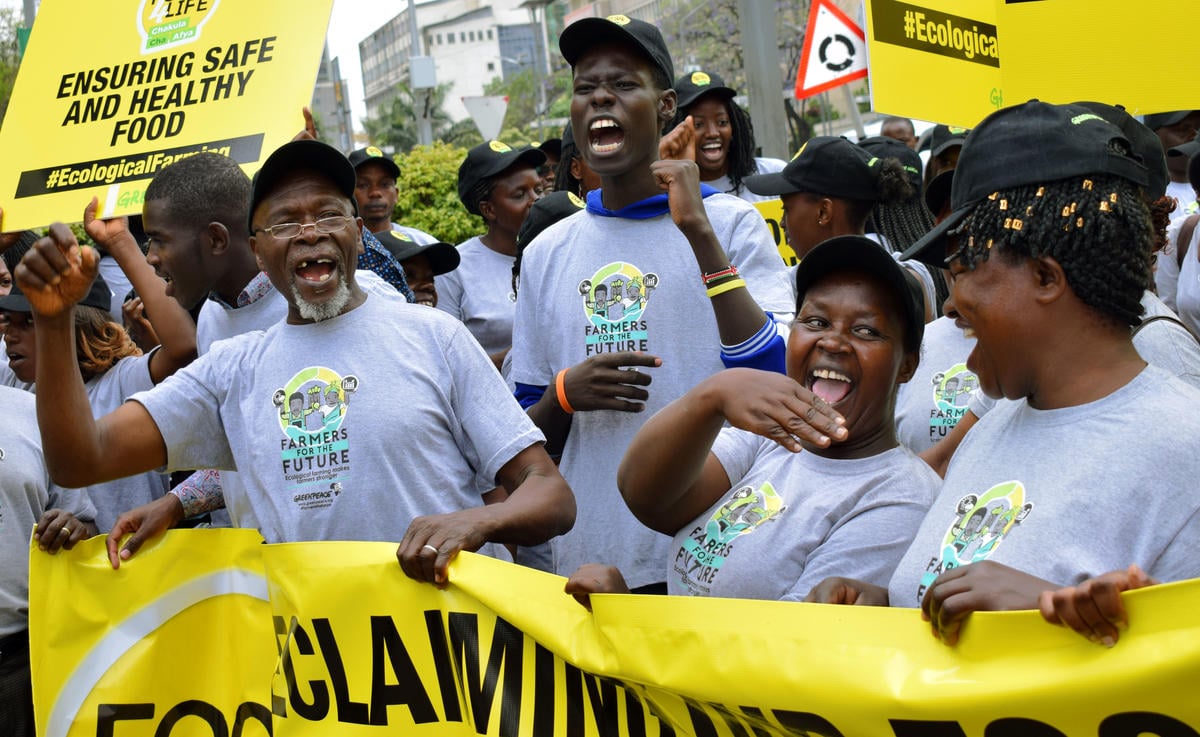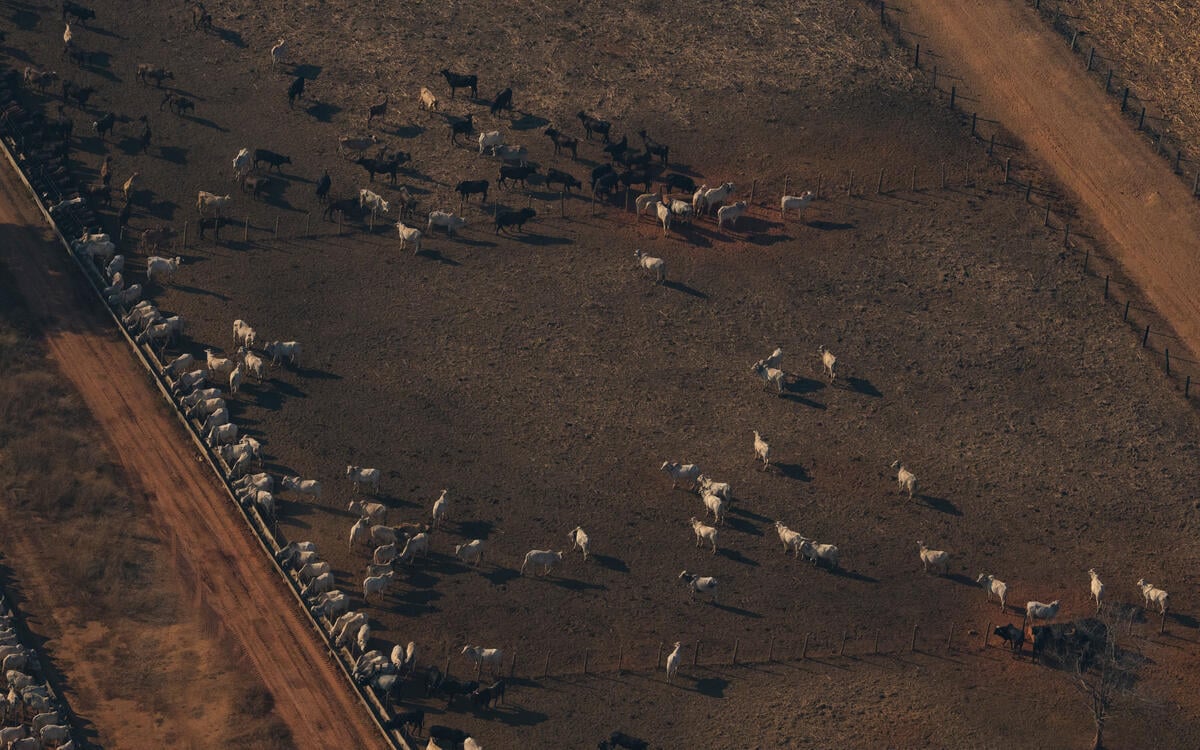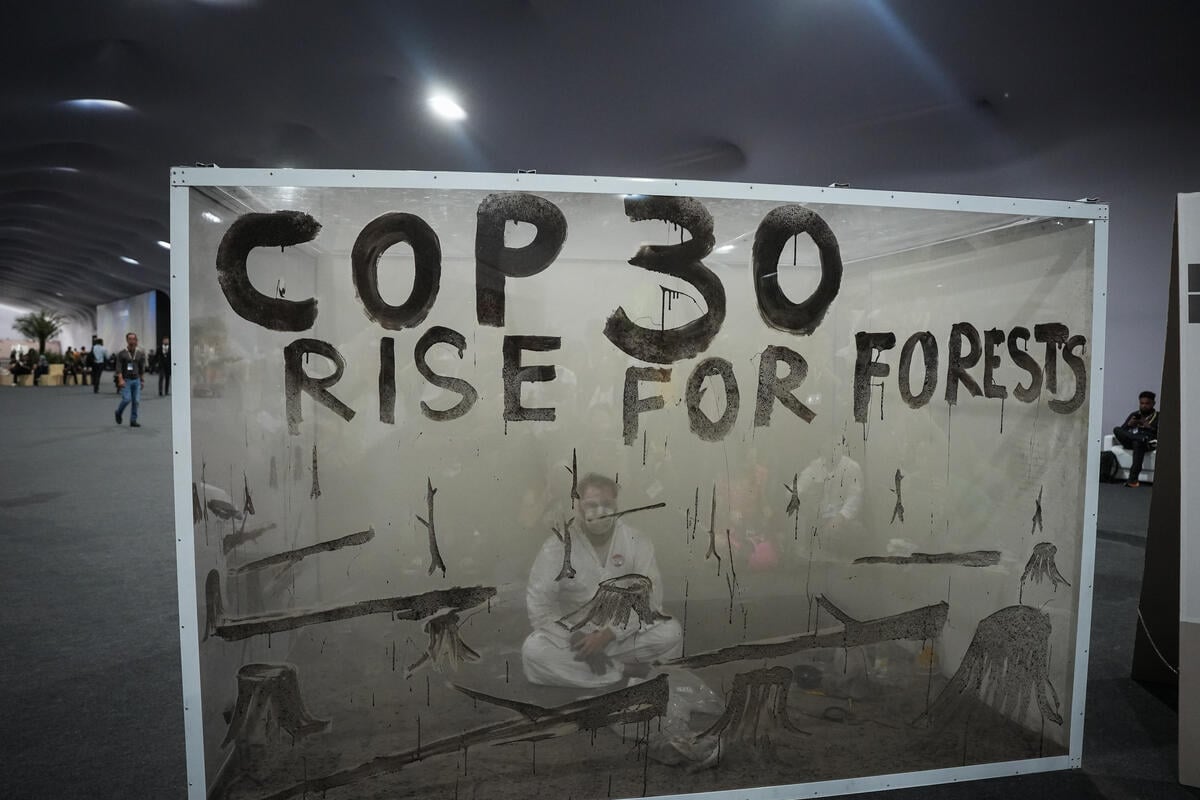Manaus, Brazil – A weak licensing system, along with indiscriminate and illegal logging of the Ipe tree is causing serious damage to the Amazon according to a Greenpeace Brazil investigation released today. According to the report, the high value of Ipe – which once processed into flooring or decking can fetch up to US$2,500 per cubic meter at export ports – makes it profitable for illegal loggers to penetrate deep into the forest. The effects are already visible in the Brazilian Amazon, including deeper encroachment of illegal roads, a growing degradation of the forest, the destruction of biodiversity and an intensification of violence in the countryside[1].
Romulo Batista, Greenpeace Brazil’s Amazon campaigner said:
“At present, it is safe to say that it is almost impossible to guarantee if timber from the Brazilian Amazon originated from legal operations, let alone from operations that do not violate human rights or environmental laws. Brazil urgently needs a forest governance and an enforcement system capable of ensuring that all timber logged in the Brazilian Amazon is extracted legally and with full regard to the rights of its Indigenous Peoples and other traditional inhabitants”.
Imaginary Trees, Real Destruction reveals the illegal logging of Ipe trees is facilitated by weaknesses in the state-level licensing process for forest management plans, one of the first steps in the process of legal timber harvesting. A field investigation in the southwest of Pará state showed that corrupt forest engineers can fake forest inventories by misidentifying undesirable trees as commercially valuable species, overestimating the volumes of valuable trees, or simply listing non-existent specimens. Based on those fraudulent inventories, state agencies issue credits for the harvesting and movement of non-existent timber. These credits are then used to “cook the books” of sawmills that process trees illegally logged from forests on Indigenous lands, protected areas or public lands.
In the report Imaginary Trees, Real Destruction, Greenpeace Brazil compares the density of Ipe trees listed in 586 logging authorisations documents issued by the Department of the Environment of Pará state between 2013 and 2017 to scientific papers. The study shows that 77% of those inventories registered volumes of Ipe trees above the levels science considers likely to be natural. In some cases, this “super filling” can reach up to 10 times more than what is considered natural.
From March 2016 to September 2017, 37 American companies imported 10,170.845 cubic meters of Ipe wood from forest management plans with evidence of illegality, bringing the United States to the top of the list of countries importing Ipe wood from areas at risk, followed by France, Portugal, Belgium and the Netherlands. In total, 11 EU countries imported 9,775.376 cubic meters in that timeframe.[2]
The main timber producing states in the Brazilian Amazon – Mato Grosso, Pará and Rondônia – operate without an integrated forestry licensing and control systems, making it harder to tackle frauds. At the same time, the market has proved reluctant to adopt its own measures to mitigate the risk of its supply chain becoming contaminated with illegal Brazilian timber.
Greenpeace is calling on the Brazilian government and the authorities of timber-producing Amazon states to review all forest management plans and suspend all of those that display evidence of fraud in their forest inventories; to implement a transparent, centralised system, integrated with state forestry licensing systems, and to monitor the chain of custody, recording the identities of the companies that buy and sell timber at a national level, automatically rejecting to transport documents showing evidence of the most common forms of fraud.
ENDS
Notes
- Greenpeace Brazil’s report Blood-Stained Timber: Rural Violence and the Theft of Amazon Timber shows how illegal logging in the Amazon is one of the main engines of violence in the region.
- The field verification methodology, as well as the complete list of companies that purchased timber from the Amazon, are detailed in Imaginary Trees, Real Destruction.
Greenpeace Brazil is launching the interactive platform Crime in the Forest to engage people into identifying evidence of real frauds in forest management plans and send alerts to the Brazilian authorities, calling for action.
Photos: http://media.greenpeace.org/collection/27MZIFJX1PW4K
Media Contacts:
Camila Rossi, Communication Officer, Greenpeace Brasil, + 55 11 9 7252-6867 / 11 9 8152-8476, [email protected]
Greenpeace International Press Desk, +31 (0) 20 718 2470 (available 24 hours), [email protected]



